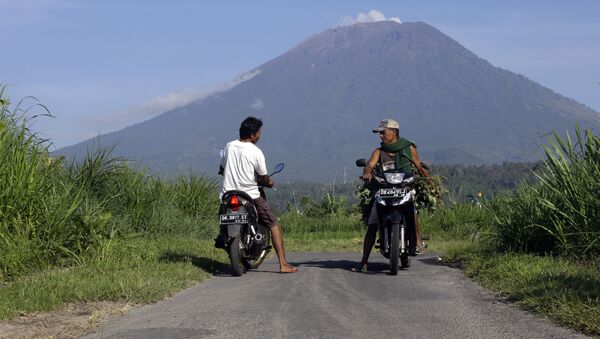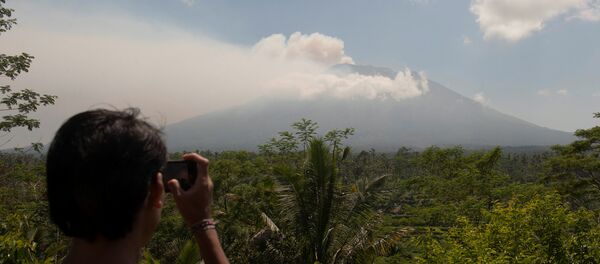US climate change expert Zeke Hausfather argued that the upcoming eruption of Mount Agung, a volcano in Bali, will lower the average annual temperature on Earth by about 0.2 degrees Celsius in the next five years.
In an analysis published by the website Carbonbrief.org, Hausfather recalled the "noticeable cooling effect on the Earth's climate" during the volcano's last eruption in 1963.
ENSO is a variation in winds and sea surface temperatures over the tropical eastern Pacific Ocean. Its warming phase is known as El Nino and the cooling phase as La Nina.
During previous volcanic eruptions, "when volcanoes were followed by an El Nino event…the average cooling was only around 0.1C or less, while volcanoes followed by La Nina events saw an average cooling of 0.3C or more," Hausfather said.
New post: Bali volcano update LIVE: Mount Agung on brink of ERUPTION as volcano rumbles – Latest https://t.co/4MJSMZH1Dp pic.twitter.com/vJSs8F2iUc
— Admin (@MajorNewsUs) 24 октября 2017 г.
He predicted that if the new Mount Agung volcano eruption occurs in 2018 and if its magnitude is on a par with the 1963 eruption, it may hamper the ongoing global warming for at least four years.
Latest update on the volcano in #Bali, Mount #Agung
— Bali.com (@balireport) 25 октября 2017 г.
4 weeks of waiting.https://t.co/PV6htLhahV pic.twitter.com/s9rnETqtTb
Currently, volcanoes are considered to be one of the key regulators of climate on Earth. They raise surface temperatures by releasing huge masses of carbon dioxide and other greenhouse gases into the atmosphere, which Hausfather said is "outweighed by the cooling impact of the dust and ash" they spew during an eruption.



